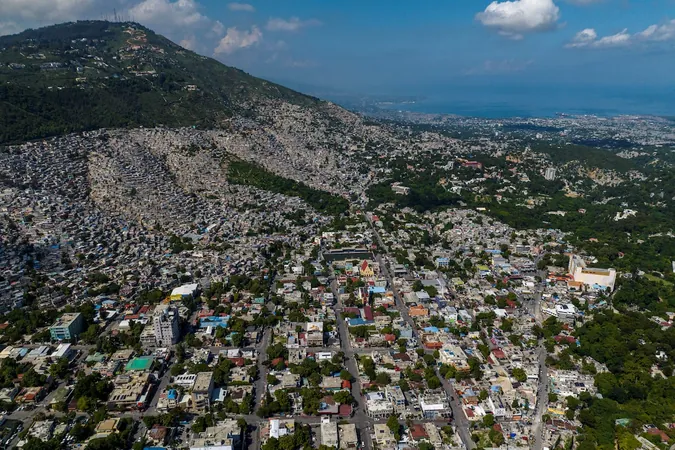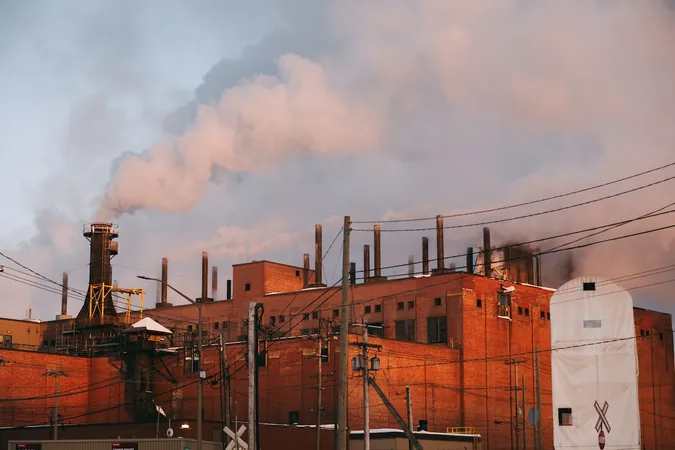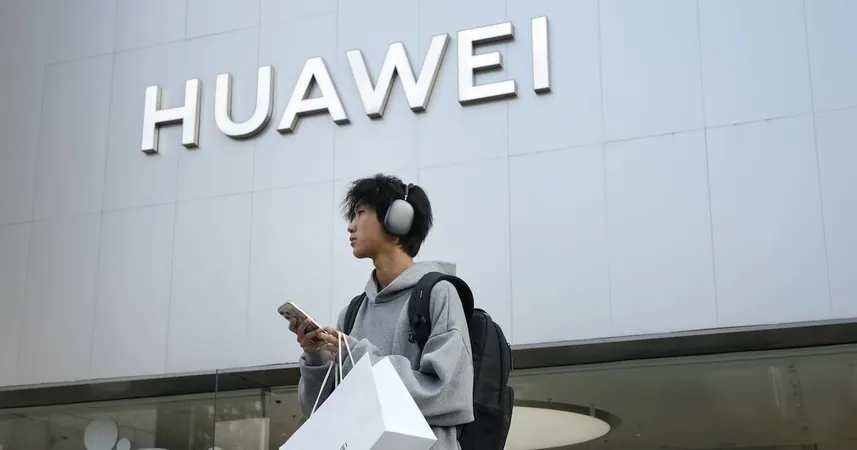
The Hidden Hand of Haiti's Elites: How Oligarchs Fuel the Chaos
2025-01-14
Author: Emma
Amid the chaos and violence that have consumed Haiti, particularly in its capital, Port-au-Prince, lies a stark contrast: the exclusive Petionville Club, the nation’s only golf course, owned in part by influential businessman Reynold Deeb. Perched on a hillside, the lavish greens and fairways starkly overlook the turmoil below, where gang violence has become a daily reality for countless citizens.
In March, as Canada evacuated its citizens amid escalating gang control that left thousands dead and hundreds of thousands displaced, the embassy reached out to Deeb to utilize his estate as a helipad for airlifts. Remarkably, just a year prior, Deeb had been accused by Canadian authorities of financing the very gangs now terrorizing Haitians. His name was placed on a sanctions list, underscoring the complicated and often corrupt intertwining of business and crime in Haiti.
The Canadian government soon expanded its sanctions to include seven additional influential Haitian figures, individuals linked to a small elite whose control over the nation’s economy is largely inherited and often tied back to colonial roots. Known colloquially as the BAM BAM—the Brandts, Acras, Madsens, Bigios, Apaids, and Mevs—this oligarchy has largely evaded scrutiny from the international community, despite being pivotal players in the country’s economic and social decline.
While foreign interference, notably from the United States and the Duvalier dictatorship, are well-documented contributors to Haiti's struggles, the economic elite's role is a critical yet overlooked factor. Observers point out that by crafting favorable relationships with corrupt politicians, avoiding taxes, and allegedly backing criminal gangs, these oligarchs have helped sink Haiti deeper into turmoil. As Dan Foote, former U.S. Special Envoy for Haiti, stated, "They’ve been running the country for at least 120 years."
Historical context reveals that Haiti's elite influences took root long before the gang violence of today. Born out of a successful slave revolt and becoming the first Black republic in 1804, Haiti transitioned from being the "Pearl of the Antilles" to a nation grappling with economic exploitation as early as the early 20th century. By 1910, foreign immigrants, particularly from Germany and the Levant, began to monopolize trade, shaping Haiti's economic landscape amid increasing unrest.
Throughout the subsequent decades, the U.S. occupation and the rise of the Duvalier dictatorship allowed these elite families to solidify their power, often to the detriment of the nation’s populace. By the 1970s, the likes of the Bigios and Mevs were prospering, enriching themselves while aligning closely with authoritarian rulers who suppressed dissension.
This pattern of exploitation continued into the late 20th century, particularly during the 1991 coup against democratically elected President Jean-Bertrand Aristide, which was supported by several of these business elites. Even as they faced sanctions from the U.S., they found ways to profit from subsequent interventions.
The 2010 earthquake that devastated Haiti further illustrated the stark divide between opportunity for the elites and despair for the average citizen. While many suffered catastrophic losses, elite families capitalized on reconstruction efforts, securing lucrative contracts that underscored their undeterred economic prowess.
Now, with the assassination of President Jovenel Moïse in 2021, which heightened gang violence and further destabilized the nation, the question of accountability looms large. Even as many elite figures have been implicated in funding or supporting gangs, the dynamics have shifted; the very groups they once manipulated for power have become uncontrollable forces that threaten their safety.
Despite their history, some business leaders are reportedly seeking redemption. Initiatives have emerged where younger heirs to these fortunes are reconsidering their role in society, recognizing their historical complicity in the nation’s plight. Discussions aimed at establishing a more responsible elite have begun, while some tycoons have even sought to engage in philanthropy.
However, such shifts take time, and immediate concerns remain. On the ground, members of the elite are reportedly paying local police to protect their privileges amid the chaos. As violence escalates, the gulf between the opulence of the wealthy and the suffering of the average Haitian remains as wide as ever.
The power struggles, both among the gangs and the business elites, indicate a country teetering on the edge amidst a crisis of governance and accountability. With sanctions tightening and scrutiny increasing, the true challenge for Haiti’s oligarchs may be not just to protect their wealth, but to navigate a future where they can no longer operate in the shadows. The world watches as Haiti's elites confront their legacy—will they choose to be agents of change or perpetuate the cycle of exploitation that has gripped their nation for generations?









 Brasil (PT)
Brasil (PT)
 Canada (EN)
Canada (EN)
 Chile (ES)
Chile (ES)
 Česko (CS)
Česko (CS)
 대한민국 (KO)
대한민국 (KO)
 España (ES)
España (ES)
 France (FR)
France (FR)
 Hong Kong (EN)
Hong Kong (EN)
 Italia (IT)
Italia (IT)
 日本 (JA)
日本 (JA)
 Magyarország (HU)
Magyarország (HU)
 Norge (NO)
Norge (NO)
 Polska (PL)
Polska (PL)
 Schweiz (DE)
Schweiz (DE)
 Singapore (EN)
Singapore (EN)
 Sverige (SV)
Sverige (SV)
 Suomi (FI)
Suomi (FI)
 Türkiye (TR)
Türkiye (TR)
 الإمارات العربية المتحدة (AR)
الإمارات العربية المتحدة (AR)